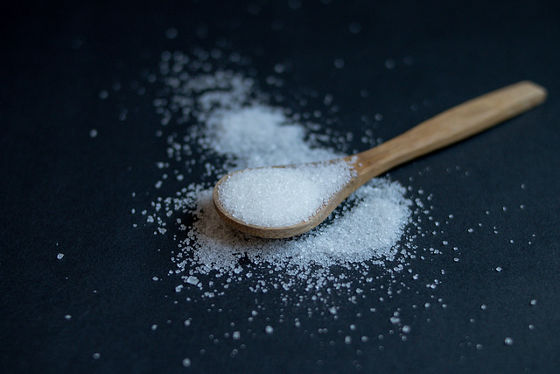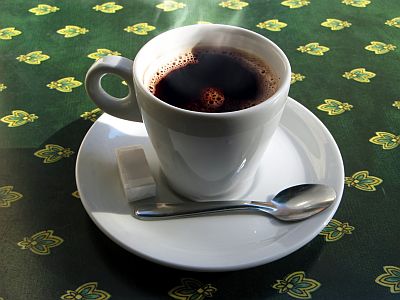It turns out that too much salt is not 'thirsty' but 'hungry'

By
The advice 'I'm thirsty if I eat only salty foods' is widely used anywhere in the world, regardless of whether it's an adult or a child, but from months of experiments that imitated space life, It has become clear that this idea is not accurate.
Mission Control for the body's salt and water supplies --MDC Insights
https://insights.mdc-berlin.de/en/2017/04/mission-control-bodys-salt-water-supplies/
Surprisingly detailed research has not been conducted on the relationship between saltiness and thirst, and there was no causal relationship to support the legend that 'drinking saltiness makes you thirsty.' A research team led by the German Aerospace Center (DLR), Max Delbrück Center (MDC), and Vanderbilt University has studied such points in detail. The team investigated the relationship between salt intake and the reaction to desire water from the data of 'virtual astronauts' who lived a life simulating a trip to Mars.
In the experiments of virtual astronauts, we examined what kind of changes occur in the mind and body while living a medium- to long-term life in an environment isolated from the normal life on the earth. The experiments were conducted on two groups of 10 men each, one with a 105-day life and the other with a 205-day life. Has been verified how each subject reacts by continuously feeding the subject a diet in which the amount of salt is changed in three stages.

As a result, it turns out to be interesting. As expected, as salt intake increased, water intake increased, and the amount of urine excreted and the amount of salt contained in the urine increased accordingly, but these increases do not necessarily mean an increase in water intake. It seems that a relationship was found that was not caused by. In fact, it has been found that salt intake has the effect of reducing water intake, and the reason is that salt has the function of increasing water retention in the kidneys.
In the past, it was thought that sodium ions and chloride ions were dissolved in water and excreted as urine, but from the results of research, salt remains in urine and water is returned to the kidneys and body. , A fact that is different from the conventional way of thinking has been found. It is said that this fact bothered the research team, but it was found that a clue to understanding was found from the experimental results using mice.
The study reveals that 'urea' is involved in producing its function. Urea is a substance produced as a waste product from muscles and when ammonia is decomposed in the liver, and is a substance excreted from urine as a substance unnecessary for the human body. It has been clarified that urea plays a role in alleviating the excretion of water from the body by ions.
However, a lot of energy is consumed when producing urea. Therefore, in experiments using mice, it was found that mice given a large amount of salt did not change their water intake and at the same time increased their diet. The same result was obtained for humans, and subjects who were fed a high-salt diet complained that they were hungry more than the other groups.

By Marco Verch
These results are about to overturn the conventional wisdom about urea. Professor Friedrich C. Luft of MDC said, 'Urea is no longer the idea that urea is a waste product. Instead, urea regulates the osmotic pressure of the body to regulate the inflow and outflow of water. It is known to be osmolyte , a very important substance for the body. Urea works to stop the outflow of water when our body excretes salt. Natural evolution Has created a way to prevent salt from draining with urine. '
In addition, this discovery will also change the way of thinking about 'moisture homeostasis ( moisture equilibrium )' that regulates the amount of water contained inside the body. This is the equilibrium relationship between the amount of water that an organism takes into the body and the amount of water that it loses to the outside world, and is one of the very important functions of the body related to the survival of an organism. Unlike previous thinking, it is becoming clear that the liver, muscles, and kidneys have coordinated functions in the human body.
Related Posts:







